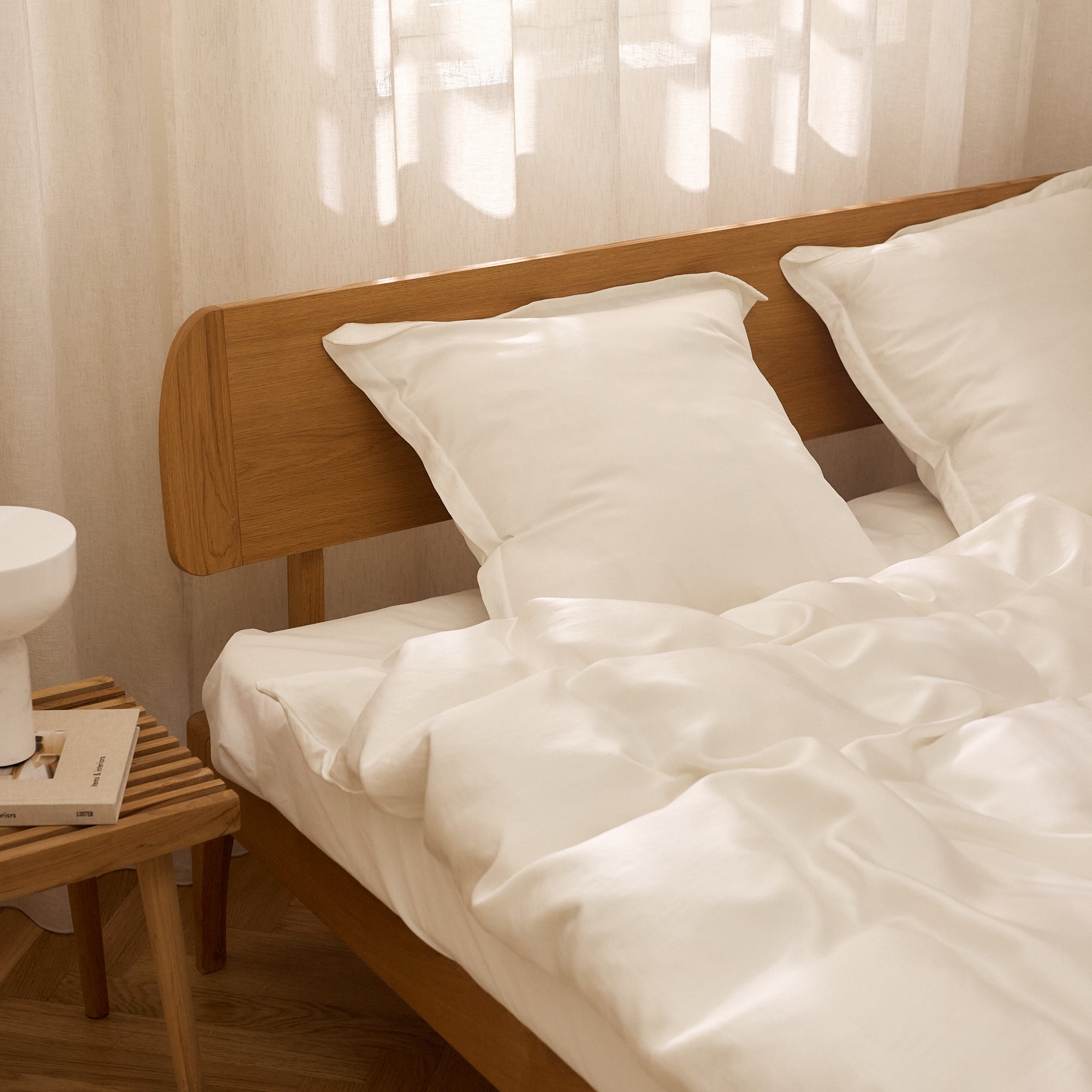
Improving Nighttime Sleep: A Guide to Better Sleep Quality
A good night's sleep is essential for our overall health and well-being. However, many people experience challenges falling asleep or staying asleep throughout the night. Fortunately, there are a number of strategies that can improve the quality of your sleep and ensure a more rested and energized day.
Create a regular sleep routine
Your body works best when it has a set rhythm. Try to go to bed and wake up at the same time every day, even on weekends. This helps regulate your internal biological clock and improves your sleep quality in the long term.
Bedding that improves your sleep experience
Your surroundings affect your sleep. A cool, dark and quiet bedroom creates the best conditions – use blackout curtains if necessary. Bedding also plays a big role in your comfort and sleep quality.
Bamboo bedding reduces house dust mites
Bamboo is antibacterial, moisture-absorbent and ideal for allergy sufferers as it is naturally
reduces house dust mites.
Silk bedding regulates temperature
Silk is breathable and luxurious. It reduces sweat and moisture, ensuring a comfortable sleep all year round.
Linen bedding is durable and comfortable
Linen is naturally temperature-regulating, becomes softer over time and has a relaxed aesthetic.
A comfortable sheet, a suitable duvet and an ergonomic pillow further improve your sleep. See the full range of bedding at Nordic Weaving.
Bambus sengetøj formindsker husstøvmider
Bambus er antibakterielt, fugtabsorberende og ideelt for allergikere, da det naturligt
reducerer husstøvmider.
Hørsengetøj er slidstærkt og komfortabelt
Hør er naturligt temperaturregulerende, bliver blødere med tiden og har en afslappet æstetik.
Avoid screens before bed
Blue light from screens can interfere with your body's production of melatonin, which helps you fall asleep. Try to avoid screens at least an hour before bed and replace it with a book or a relaxing activity.
Pay attention to your diet and caffeine intake
What you eat and drink in the hours leading up to bed can affect your sleep. Avoid caffeine and large meals close to bedtime, as they can make it harder to fall asleep.
Get enough exercise during the day
Regular exercise can improve your sleep, but avoid intense physical activity right before bed as it can have an invigorating effect. A daily walk or light yoga practice can be beneficial for a better night's sleep.
Manage stress and worries
Stress and worries can be big obstacles to a good night's sleep. Try relaxation techniques like meditation, deep breathing, or journaling to reduce stress levels before bed.
By implementing these tips into your daily routine, you can improve your sleep quality and have more energy in your everyday life. Good sleep starts with good habits!





























































